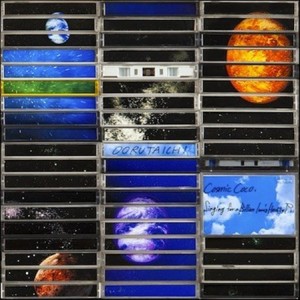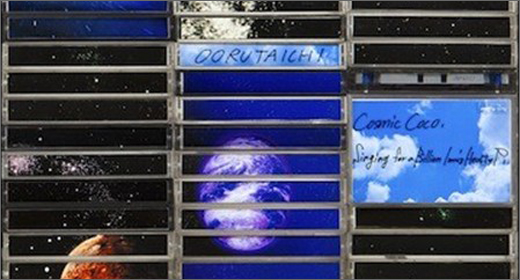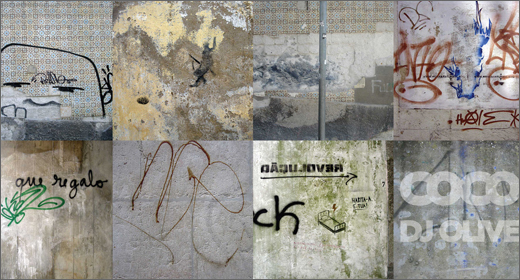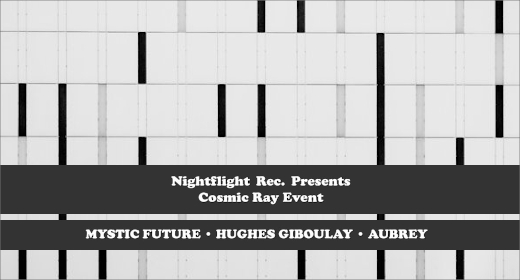Oorutaichi has created his own personal creole (named after himself) in which he sings his songs, and he has poured a can of 7-Up onto the motherboard of his computer, warping its logic. Instead of breaking pop into twitching, barely recognizable fragments, Oorutaichi blazes with an unerring sense of melody and unmistakeable joy in creativity.
 [Release page] Like its title, this album is an assault on cognative linguistics and confoundment of your expectations about deconstructing pop electronica. Oorutaichi has created his own personal creole (named after himself) in which he sings his songs, and he has poured a can of 7-Up onto the motherboard of his computer, warping its logic. Instead of breaking pop into twitching, barely recognizable fragments, Oorutaichi blazes with an unerring sense of melody and unmistakeable joy in creativity.
[Release page] Like its title, this album is an assault on cognative linguistics and confoundment of your expectations about deconstructing pop electronica. Oorutaichi has created his own personal creole (named after himself) in which he sings his songs, and he has poured a can of 7-Up onto the motherboard of his computer, warping its logic. Instead of breaking pop into twitching, barely recognizable fragments, Oorutaichi blazes with an unerring sense of melody and unmistakeable joy in creativity.
“Futurelina” is a carnival train dancing down the boulevards of Rio at triple speed that winds down with a sweet violin quartet coda. Guest vocalist OLAibi sings Sailor Moon-eyed J-Pop on demi-title track “Coco.” “Vofaguela” is a clipped and spastic Afrofunk celebration, while “Merry Ether Party” opens with a dour, looping organ, Oorutaichi berating the congregation. One of the few guest instrumentalists on the album squats down at the tablas but a party certainly never breaks out. Beneath the rocketing beat of “Venus” is a bouncy carpet of space-age easy-listening music for the most modern shopping mall of 1967. The opening of “Linking Pi” fooled me into expecting a cover of “99 Luftballons.” Instead, it’s a rainbow giving the sun a great big hug. “Permanent Candy” is a rave for munchkins. Inventive remixes of “Futurelina” follow up the rear, by EYE (of Boredoms) and Ninja Tune artist Daedelus.
There’s too many lights blinking, too many voices singing, the colours are too bright, too gaudy. It’s like watching a Saturday afternoon cosplay display in a Tokyo park through a funhouse mirror. It’s utterly unclassifiable, utterly exhausting and just fantastic. I can honestly say this is the most fun I’ve had listening to an album this year. Oorutaichi does what Haruki Murakami does with literature and Takashi Murakami (no relation) with his “superflat” plastic arts aesthetic—urges us to enjoy the shiny surface of his surrealism but entices us back time and time again to look deeper and find more.
Cosmic Coco, Singing for a Billion Imu’s Hearty Pi is available on Out One Disc. [Release page]
[itunes id=”417025539″]

























